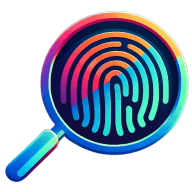In the ever-evolving world of finance, a career as a fraud analyst has become increasingly important and rewarding. This blog post aims to guide you through the process of building a successful career in this field. We will explore the necessary education, skills, and experience you need, along with the potential career paths and opportunities that await you in the world of fraud analysis.
Understanding the Role of a Fraud Analyst
A fraud analyst plays a crucial role in protecting an organization's financial health. They are responsible for detecting and preventing fraudulent activities that could lead to financial loss. This involves analyzing data, identifying suspicious activities, and implementing strategies to mitigate risks.
To succeed in this role, you need a strong understanding of financial systems and regulations. You also need to be adept at using data analysis tools and techniques. A keen eye for detail and a problem-solving mindset are also essential.
The role of a fraud analyst can vary depending on the organization and industry. In a bank, for instance, a fraud analyst might focus on detecting and preventing credit card fraud. In an insurance company, they might work on identifying fraudulent insurance claims. Regardless of the specific role, the goal remains the same: to protect the organization from financial loss due to fraudulent activities.
Educational Requirements for a Fraud Analyst
A bachelor's degree in finance, accounting, or a related field is typically the minimum educational requirement for a fraud analyst. These programs provide a solid foundation in financial principles and practices, which are crucial for understanding and detecting fraud.
Some universities offer specialized programs in fraud or forensic accounting. These programs delve deeper into the specific techniques and tools used in fraud detection and prevention.
In addition to a bachelor's degree, many employers prefer candidates with a master's degree in a related field. A master's degree can provide more in-depth knowledge and can also open up more advanced career opportunities.
Skills and Experience Needed for a Fraud Analyst
In addition to the educational requirements, there are certain skills and experiences that can make you more competitive in the fraud analyst job market.
Analytical skills are at the top of the list. As a fraud analyst, you will be working with large amounts of data. You need to be able to analyze this data to identify patterns and trends that could indicate fraudulent activity.
Attention to detail is another important skill. Fraudsters often go to great lengths to conceal their activities, so you need to be able to spot the smallest inconsistencies.
Experience in the financial industry can also be beneficial. This can give you a better understanding of the systems and processes that you will be protecting. Internships, part-time jobs, or even volunteer work can provide valuable experience.
Certification and Continuing Education for a Fraud Analyst
Certification can be a great way to demonstrate your expertise and commitment to the field. The Certified Fraud Examiner (CFE) certification, offered by the Association of Certified Fraud Examiners (ACFE), is one of the most recognized certifications in the field.
To become a CFE, you need to meet certain educational and professional requirements, pass a rigorous exam, and adhere to a strict code of professional ethics.
Continuing education is also important in this field. Fraud techniques and technologies are constantly evolving, so you need to stay up-to-date with the latest trends and developments.
Career Path and Opportunities for a Fraud Analyst
A career as a fraud analyst can be both challenging and rewarding. It offers the opportunity to make a significant impact by protecting organizations from financial loss.
There are many potential career paths for a fraud analyst. You could work in a variety of industries, including banking, insurance, government, and more. You could also specialize in a specific type of fraud, such as credit card fraud or insurance fraud.
With experience, you could move into more senior roles, such as a fraud manager or director of fraud prevention. These roles involve overseeing a team of fraud analysts and developing organization-wide fraud prevention strategies.
The Future of Fraud Analysis
The field of fraud analysis is constantly evolving. As technology advances, so do the methods used by fraudsters. This means that fraud analysts need to be adaptable and always ready to learn.
Artificial intelligence and machine learning are becoming increasingly important in the field. These technologies can help to analyze large amounts of data more quickly and accurately, making it easier to detect and prevent fraud.
Despite these technological advances, the need for skilled fraud analysts is unlikely to diminish. Technology can aid in the detection of fraud, but it still requires a human touch to interpret the results and make decisions.
Stepping Stones to a Fraud Analyst Career
Building a successful career as a fraud analyst requires a combination of education, skills, and experience. It's a challenging yet rewarding field that offers many opportunities for growth and advancement. By understanding the role, meeting the educational requirements, honing your skills, gaining experience, and staying up-to-date with the latest trends, you can craft a successful career in fraud analysis. Remember, the path may be challenging, but the rewards are worth the effort.

